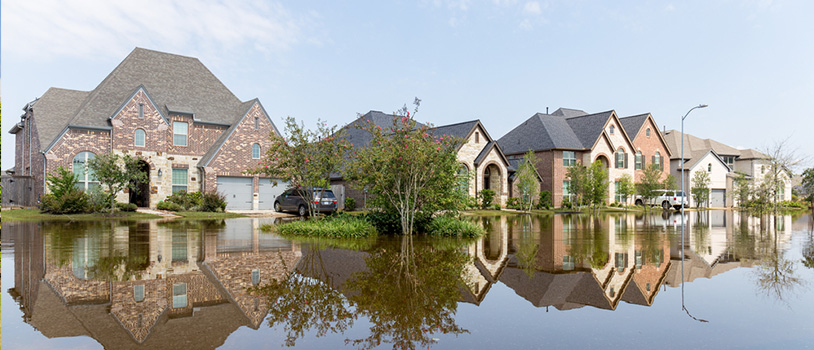
Floods Are the Nation’s Number One Natural Disaster
Since standard homeowners insurance doesn’t cover flooding, it’s important to have protection from the floods associated with hurricanes, tropical storms, heavy rains and other conditions that impact the U.S.
In 1968, Congress created the National Flood Insurance Program (NFIP) to help provide a means for property owners to financially protect themselves. The NFIP offers flood insurance to homeowners, renters, and business owners if their community participates in the NFIP. Participating communities agree to adopt and enforce ordinances that meet or exceed FEMA requirements to reduce the risk of flooding.
So What Is Flood Insurance?
Flood insurance covers direct physical loss caused by “flood.” In simple terms, a flood is an excess of water on land that is normally dry. Here’s the official definition used by the National Flood Insurance Program.
A flood is “A general and temporary condition of partial or complete inundation of two or more acres of normally dry land area or of two or more properties (at least one of which is your property) from:
- Overflow of inland or tidal waters
- Unusual and rapid accumulation or runoff of surface waters from any source
- Mudflow
- Collapse or subsidence of land along the shore of a lake or similar body of water as a result of erosion or undermining caused by waves or currents of water exceeding anticipated cyclical levels that result in a flood as defined above.”
Anywhere it rains, it can flood. People outside of mapped high-risk flood areas file more than 20 percent of all National Flood Insurance Program (NFIP) flood insurance claims and receive one-third of Federal Disaster Assistance for flooding.
Our staff a have a complete understanding of the requirements and coverage limits and exclusions that exist on flood insurance policies and can help you to develop a policy to protect you home from the damage a flood can cause.
Please contact us directly for a no cost evaluation of your current policy or to inquire about opening a new policy.



